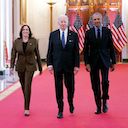
How to Tell the History of the Democrats
What connection does the party of Thomas Jefferson and Andrew Jackson have to the party of Barack Obama and Kamala Harris?


What connection does the party of Thomas Jefferson and Andrew Jackson have to the party of Barack Obama and Kamala Harris?

Like almost every other war film, The Battle at Lake Changjin is less a work of art than a social engineering project.
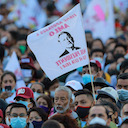
AMLO has performed a tightrope walk as president, balancing the opposing tendencies of populism: the extension of democracy and the strengthening of personal leadership. Has he begun to wobble?
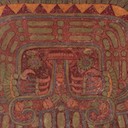
The Dawn of Everything challenges us to shake off fatalism and embrace the creativity at the heart of doing politics.

An interview with Ching Kwan Lee.

How did a scrappy group of organizers without institutional backing prevail over the second-largest employer in the United States?
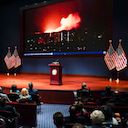
The consensus thesis allows pundits to settle into the comfortable role of brave prophet standing alone against the warmongering tide.

The seismic shifts in the global world order during Xi’s rule call for new tools for understanding China and the varied lives and views of its inhabitants.
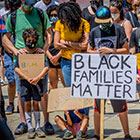
An interview with Dorothy Roberts, the author of Torn Apart: How the Child Welfare System Destroys Black Families—and How Abolition Can Build a Safer World.
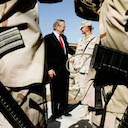
Reign of Terror situates the War on Terror as part of a longer story of domination that can be traced back to the founding of the United States as a settler-colonial and slaveholding behemoth.
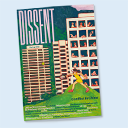
A preview of our Spring 2022 issue.

MLB owners’ recent lockout was an effort to reverse the gains that players had won over decades of labor struggle. The owners failed.
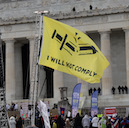
The contemporary right has inherited two seemingly contradictory impulses from the neoliberal era: anti-democratic politics and a libertarian personal ethic.

In this photograph of Barbara and Beverly Smith of the Combahee River Collective, the framed pictures reflect an endless cascade of black women’s intellectual labor and political action.

Jonathan Franzen’s Midwestern broods, like horsemen of the apocalypse, ride through his books heralding various endings: of eras, of bygone mores, of novels themselves.